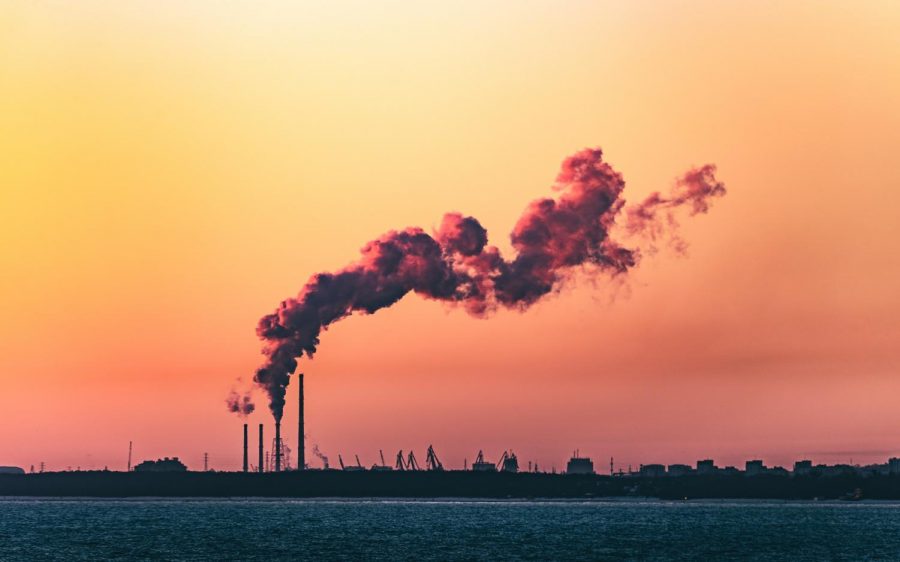Trump vs. Biden: Foreign and Climate Policy
May 14, 2021
Each year, the importance of climate change and global warming increases as the time to solve this crisis decreases. Though the Biden administration seeks to pursue greener initiatives within the US, an already difficult task, the problems we face with climate change won’t be solved without the partnership and collaboration with other nations around the globe. That means global partnerships and cooperative diplomacy. The US may not technically be in any wars right now, that does not mean that tensions with other nations aren’t high. The US’s international reputation and relationships have deteriorated in recent years, making this necessary task even more difficult.
The Biden and Trump administrations have fiercely clashed on several issues on climate and foreign policy, the most notable being clean energy sources, climate agreements, participation in international organizations, the Iran nuclear deal, and our presence in Afghanistan. Biden has made it clear that preventing further climate change and restoring America’s reputation among our allies are a top priority for his administration. The question is whether he will be able to pull it off.
Trump:
As was the story of the Trump administration on many issues, facts don’t come before a narrative. This is especially true when it comes to Trump’s handling or lack thereof on the global climate crisis we are currently facing.
Despite a mountain of science and data available on not only the fact that climate change and global warming is real but that we are on track for a climate disaster if we do not act soon, Donald Trump and many other conservatives have refused to accept or acknowledge that this is a problem we are facing. This is evident in the repealing of many policies laid out by the Obama administration that were in an effort to protect the environment and move towards a clean energy movement. The most damning actions being the 100+ environmental protection policies that were rolled back during the Trump presidency according to the New York Times.
The Trump administration has made several moves to deregulate the energy sector as well as pull out of international climate agreements–such as the Paris Climate Accords. Beyond leaving the paris agreement, the Trump administration sought to end many diplomatic ties with nations and international organizations, including 10 other important agreements, deals, and councils.
A pattern soon emerged–one of American isolationism and ‘America first’. Though the US is still close partners with nations like the United Kingdom, Israel, Canada, Australia, and almost all of western Europe, our relationships have surely been stressed by our lack of collaboration or efforts to support our allies. Trump repeatedly railed against NATO and the funding being spent on the military alliance, even looking to leave the partnership. Leaving our European allies more vulnerable.
When it came to our adversaries, namely the Russian Federation, the People’s Republic of China, and the Islamic Republic of Iran, Trump has been more than inconsistent. Throughout his term, Trump failed to react to human rights violations committed by Russia as he did with China and Iran.
Trump has been tough on China whether it was the trade war or its differing policy objectives with that of the US. Iran has been a target of the Trump administration as well through the severing of diplomatic ties along with several proxy conflicts, like that of the Iran Nuclear deal that sought to prevent Iran obtaining nuclear weapons. This has directly led to heightened tensions not only in Iran, but the larger region, as well.
Nearby, the US in a controversial deal with the Taliban, cutting out the Afghan government, agreed to pull out all of its troops in the country by May 1. The decision by the Trump administration was strongly opposed by the Afghan government due to its inability to defend against Taliban forces without the aid of the American military.
Though aggression toward US forces has dwindled since the agreement last year, increased attacks have occurred in Afghan cities, killing thousands. As a result of the Trump administration’s moves to end the US’s involvement in the country, Afghanistan has progressively become more unstable.
Biden:
The new Biden administration refreshingly trusts in the facts that global warming is a crisis and that the US must seek to fight climate change. Biden has made it clear that he wishes to accomplish many land-mark goals in clean energy and the prevention of future climate disasters.
Biden also has made it known that he wishes to rejoin various climate and other diplomatic agreements and organizations that were previously left by the Trump administration. The earliest example was the rejoining of the Paris Climate Accords.
Biden and his Secretary of State Antony Blinken have expressed that they’re top priorities are rebuilding alliances and returning the United States as an international leader.
Biden, far from a ‘soft’ negotiator, has noted that the relationship the Trump administration established with Russia was not only unhealthy, but detrimental to American interests. Though having criticized the trade war and other policies towards China, Biden does not seem to split from Trump on the tough policy approach that has been in practice for the last four years.
When it comes to Iran, Biden shifts sharply from the previous administration. Due to it’s important role in both the Middle East and future of America in the region, the new administration believes Iran should be a focus of diplomatic discussions
One of the largest and toughest decisions the Biden administration faces is what to do about Afghanistan. Though Biden was in favor of reducing the United States presence in the country, it’s apparent that he is not a fan of the current deal in place. The deadline for the deal’s main condition is May 1st. Many agree that this timeline would be a logistical nightmare to make realistic.
The question however is whether Biden will try to pull out at all. Many democrats support our presence in the country and experts have thrown around numbers like 4,500 to 8,600 troops being necessary to maintain stability in the country.
The United States faces a climate crisis and several diplomatic crises, as well. Since the Trump administration chose not to address global warming or the challenges facing our nation’s allies, these crises along with several isolating actions has landed our country in a dark and lonely place such that it will take a lot of work to rebuild our relationships with other nations.
Biden will have to navigate our murky relationship with Russia, maintain a strong position against China, restructure our ties to Iran, and make a dire decision on Afghanistan. Certainly a very difficult laundry list of policy challenges. However, the Biden administration has made progress in reinstating our position in the world as well as declaring a new age to foreign policy that seeks to not only benefit Americans, but all people around the world.



